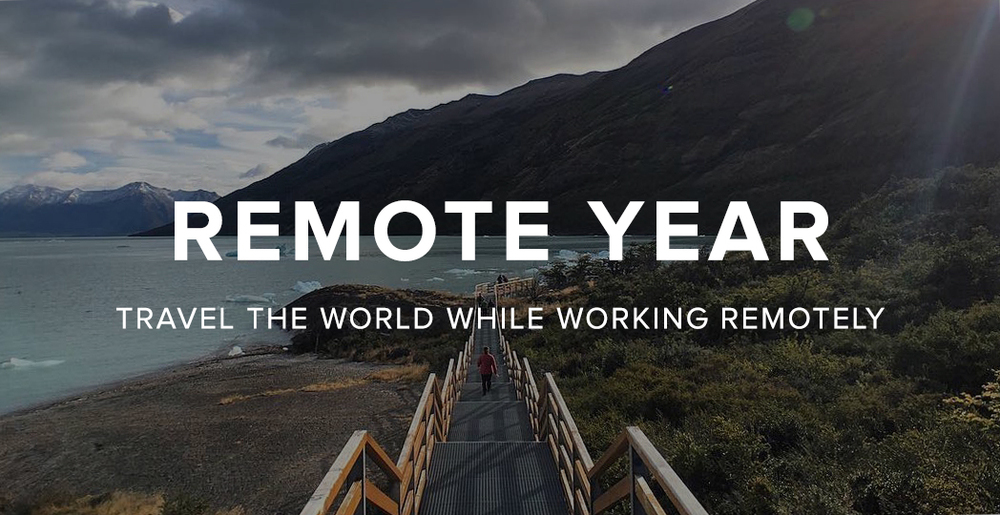In terms of days, Battuta is now over halfway finished with Remote Year. We’ve visited at least 6 countries, taken flights and buses and ferries, spent $12,000 Dollars on housing and a workspace, made new friends and had to say goodbye to a few remotes along the way. At this point, what do I say to someone who is thinking about Remote Year? I’d recommend it, but it’s more complicated than a simple yes or no.
My evaluation of Remote Year
Show me the numbers
Back in the first few months of this adventure, I realized that we didn’t really know the group consensus on how things were going generally, or on specific issues. Remote Year did ask these questions, but we don’t get to see the results. So I sent out a survey (and got a 74% response rate!); I asked questions like:
– Would you recommend Remote Year to friends or colleagues?
– Are you thinking about leaving in the next 3 months?
– Has any Remote or RY Staffer impressed you this month? Tell us who.
The first question is known as Net Promoter Score (NPS). My boss asked me last month to rate my experience in terms of NPS as well — and I said 7 or 8. That’s right on the edge of passive (no affect) and promoter (creating value for the business). If you asked me directly, I’d say it’s not for everyone, but given the right situation and having the right expectations, I’d recommend Remote Year.
Remote Year City Choice
I very much enjoyed some of our first cities, like Montevideo and La Paz (my favorite so far). But some of the later ones were very touristy, like Cusco and Prague. When I didn’t feel like I was enjoying a city, I would take a side trip to other nearby locations, like Machu Picchu and Dresden. I think I’ve discovered I like interesting, authentic culture, and don’t like tourist traps (in hindsight, I already knew this).
We also swapped Istanbul for London. Removing Istanbul from the itinerary seems like a wise move, given the subsequent bombings and failed military coup. I preferred some place to go that was more outside my comfort zone than London, though. I loved seeing my colleagues in Hayes, but I didn’t expect to be speaking English again so soon. Rabat or Valencia would have been interesting, but you can always opt-out from a city or take side trips; I chose to visit Madrid.
Overall, the city choice has been a net positive thing for me.
Remote Year as a Professional platform
I think the program walks the line between social and professional; it’s sometimes tricky to even find where professional ends and social begins within a given event. I don’t think we do as many professional events, but I also don’t think that’s entirely the fault of RY. I think our group might not be as interested in professional events (even when we say we are, we don’t always show or follow through on them). However, it seems like most of the other groups have more success than us in the professional programming department.
I think the biggest concrete issue with our professional programming has been events scheduled in the middle of the workday for US and European timezones. While we’re a diverse group, most of us work in those timezones, if we’re bound to a schedule. I’d like to see more professional lunches and professional events over the weekend, instead of during or after a long day.
Aside from scheduling, the actual event content has been pretty interesting and useful. I’d rate this one as a positive thing.
Remote Year’s Community
This is actually the biggest benefit of the program, but the most undervalued by RY-the-company. There’s really no expectations or guarantees — RY has a community manager position, who travels with us, but doesn’t really have a set script. I think my only real complaint about events is that they are unpredictable. I’d like to know further in advance so I can plan side trips and visitors around particularly interesting RY events.
Aside from the RY staff, community is still very much an aspect of Remote Year that the participants are responsible for too. I would like to see us do better at supporting each other as a community, when we disagree, versus, “every man for himself.” But I understand the flip-side of that too. When I’m stressed, the only thing I can control is my own experience, so sometimes I do take control and separate myself.
I’ve made some really great friends on the trip, but there’s also a lot of folks I don’t see much too. Given that we’re already past the halfway point, I’d say community is break-even (neither a pro or con) at this point for Battuta. I think some other cohorts have probably accomplished more on this front than ours has.
Remote Year’s Value
I’m not convinced Remote Year has delivered on providing a turnkey solution to traveling the world, without worrying about the logistics. I’m always having to deal with something — no hot water, a broken sink, no internet signal, or sometimes even a dirty, moldy room. Despite that, I’m perfectly comfortable 99% of the time. I simply didn’t expect to have to handle so much myself.
Conclusions about Remote Year
It’s entirely possible that no one could have delivered a fully turnkey solution to working and travel; I’m open to that conclusion. But I think Remote Year has basically bet their business on that being possible to deliver, and then promising to deliver it. Maybe I’m naive to think anyone could do those things (after all, travel is unpredictable). I’m probably too much of a control freak to let someone else take control — still, I’m staying until the end, taking control when things don’t go so well with housing or internet, and letting Remote Year plan the rest.
